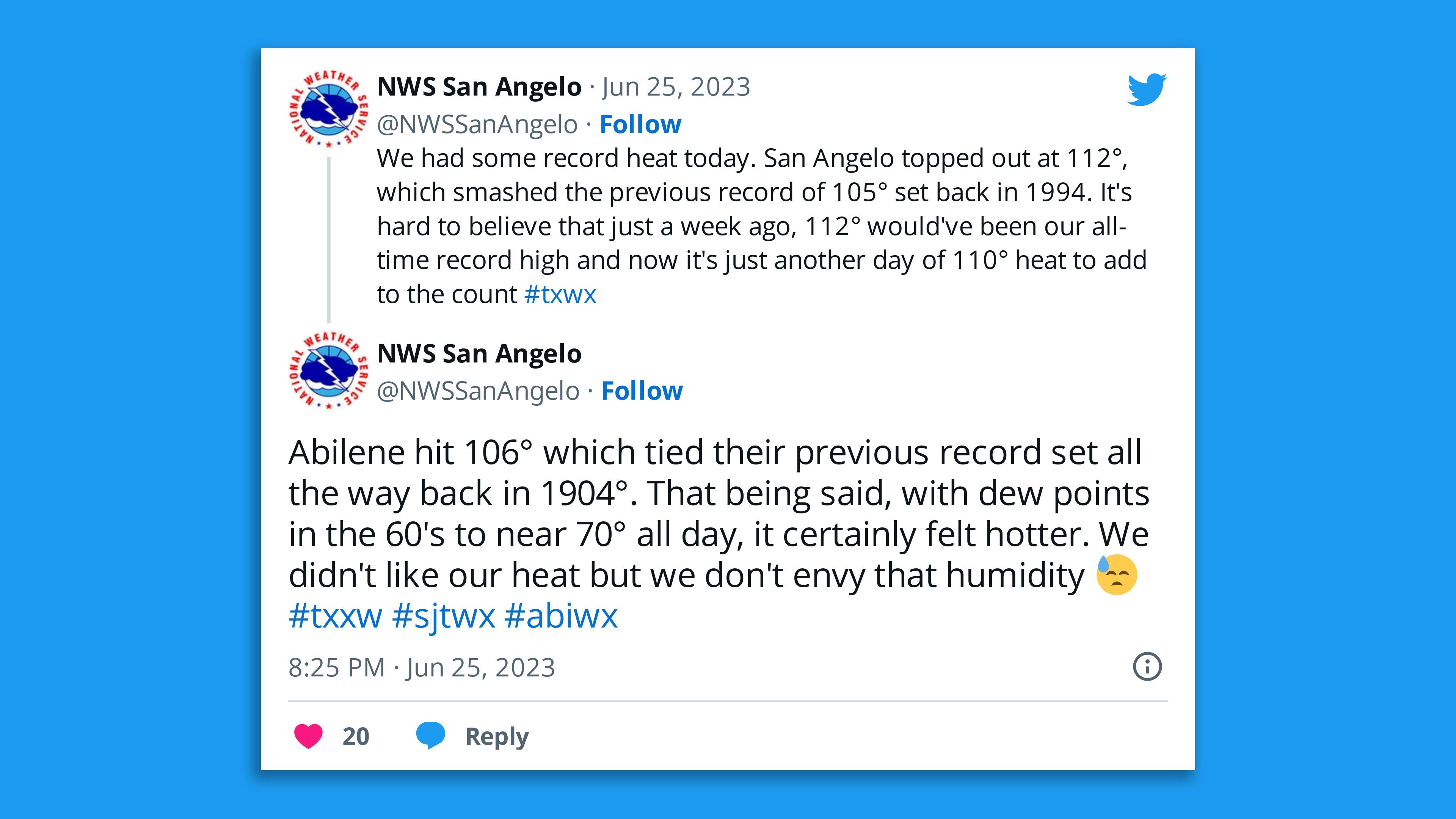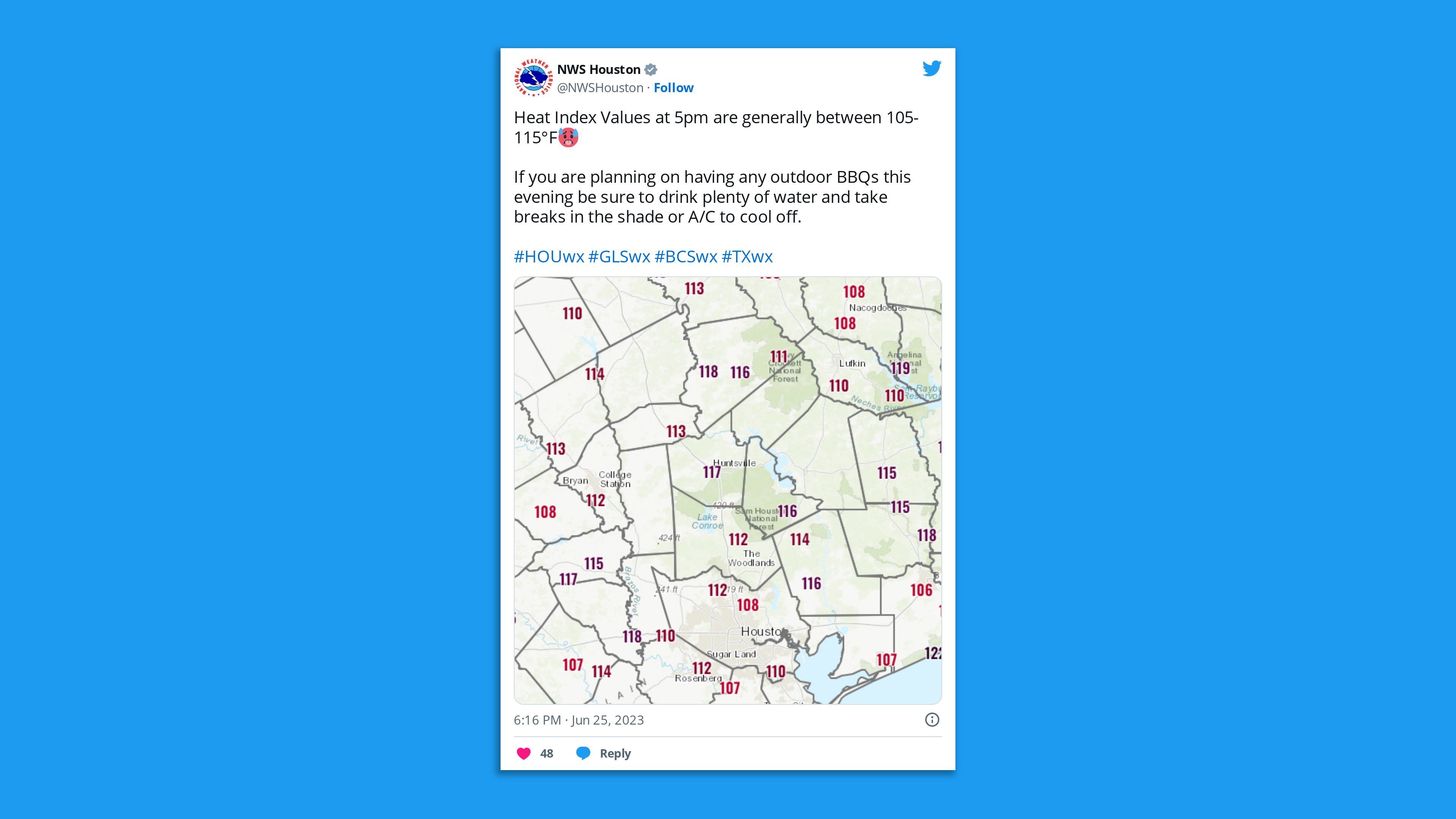Over 50 million people in the southern U.S. were under heat advisories and many others were facing the threat of severe weather that spawned tornadoes and thunderstorms over the weekend and into Monday.
State of play: The severe storms saw an estimated 168,000 customers lose power in Georgia, along with some 132,000 others in both Kentucky and Tennessee and a further 126,000 in Arkansas early Monday, while a series of suspected tornadoes late Sunday damaged property in Indiana and killed a person in the state's Martin County.
- Thunderstorms caused flight delays in major transport hubs Sunday in New York City, Atlanta, Detroit, Cleveland, Louisville, Cincinatti, Philadelphia and Detroit, while flights to and from D.C.-area airports were suspended in the evening due to an air traffic control issue before the FAA switched to a "backup facility," per the Washington Post.
- The National Weather Service warned as thunderstorms lashed Tennessee, Mississippi, Arkansas and parts of the Ohio Valley that "strong to severe storms" would move southward through Alabama and Georgia.
Meanwhile, in Texas, where the record-breaking heat wave entered a third week, the NWS office in San Angelo noted that a wind gust of 64 mph was recorded over the western community of Ozona during a "dry microburst" in a thunderstorm — which typically occurs with very little precipitation at the surface.
- The NWS said the life-threatening "oppressive" heat dome was producing "dangerous heat and humidity in Texas and spread into the lower Mississippi River Valley," as new temperature records were set across the Lone Star State Sunday.

By the numbers: Del Rio hit a record high for June 25 of 110 degrees Fahrenheit Sunday — the eighth straight day that the city in southwestern Texas has seen a daily record high temperature set, according to the NWS.
- Laredo in southern Texas has reached a record high temperature six days in a row and Sunday would likely be the seventh, per the NWS. "Four of those days have had a high above 110° including a tie of their all-time highest temp 115° on June 19," the weather service added.
Threat level: This searing heat wave in the south-central U.S. "shows no signs of letting up as a stagnant upper-level ridge remains in place," the weather services warned in an update early Monday.
- "Widespread heat-related advisories are in effect for southern Arizona and New Mexico and across most of Texas as temperatures soar once again into the 100s" and some daily and overnight record-tying or record-breaking high temperatures were once again possible, the NWS said.
Context: Climate change is causing heat waves to be more intense, longer-lasting and more frequent, multiple studies show.
- It's also leading to more intense extreme precipitation events due to a warmer atmosphere that can hold more water vapor — providing added moisture and energy to storm systems.

Go deeper: Extreme heat in Texas and southern U.S. may linger until Fourth of July
Editor's note: This article has been updated to include new temperature records and more details from the storms.







